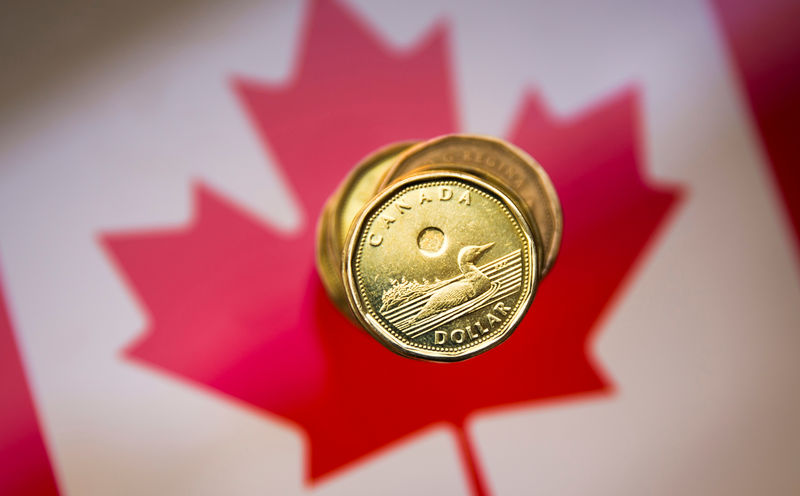TORONTO (Reuters) - The Canadian dollar was little changed against the greenback on Thursday, holding near its strongest level in two weeks as domestic data showed a surprise rise in wholesale trade and ahead of a speech by Bank of Canada Governor Stephen Poloz.
Canadian wholesale trade increased by 0.3 percent in December from November on stronger sales in the motor vehicle and parts subsector, Statistics Canada said. Analysts had forecast a 0.1 percent decrease.
A separate report, from ADP (NASDAQ:ADP), showed that Canada added 35,400 jobs in January as hiring increased in the trade, transportation and utilities and professional and business services sectors.
The Bank of Canada, which said in January that the challenges facing the economy were temporary, will release Poloz's prepared remarks on monetary policy at 12:45 p.m. EST (1745 GMT).
At 9:52 a.m. (1452 GMT), the Canadian dollar was trading nearly unchanged at 1.3179 to the greenback, or 75.88 U.S. cents.
The currency, which on Wednesday touched its strongest level since Feb. 6 at 1.3151, traded in a range of 1.3164 to 1.3206.
The steady profile for the loonie came as Wall Street was pressured by data showing an unexpected drop in new orders for key U.S.-made capital goods. The data offset news that the United States and China have started to outline commitments in principle on the stickiest issues in their trade dispute.
Canada is a major producer of commodities, including oil, so its economy could benefit from improved prospects for global trade.
Oil prices hovered around 2019 highs on Thursday, bolstered by OPEC-led supply cuts and U.S. sanctions on Venezuela and Iran, but were capped by slowing growth in the global economy.
U.S. crude oil futures were down 0.30 percent at $56.99 a barrel.
Canadian government bond prices were lower across a steeper yield curve in sympathy with U.S. Treasuries. The two-year fell 5.5 Canadian cents to yield 1.800 percent and the 10-year declined 34 Canadian cents to yield 1.935 percent.

Canada's government will unveil its budget for the 2019/20 fiscal year on March 19 and outline ways to provide more access to prescription drugs, Finance Minister Bill Morneau said on Wednesday, confirming a report from Reuters. The budget is the last before a federal election in October.